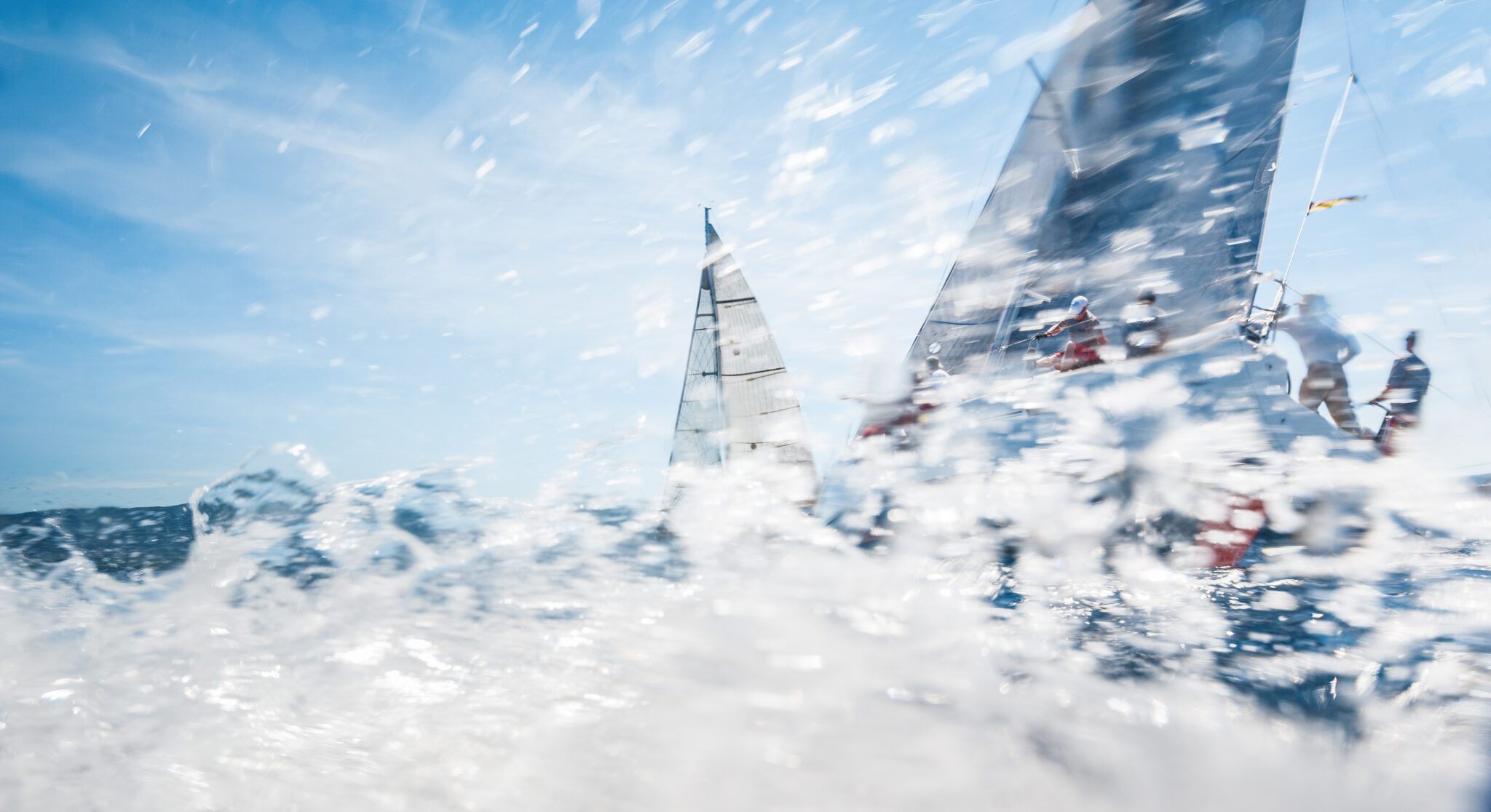Most of our Clean Regattas are based in only one land location – so how do the Best Practices apply when most of your event isn’t on land? Offshore races and rallies have adapted the Clean Regattas program to use while they’re underway and in multiple stopover locations. While working with teams across locations can require a lot of planning and communication, it can also have a huge sustainability impact! Here we explore examples of offshore events that are charting the course for greener crossings.
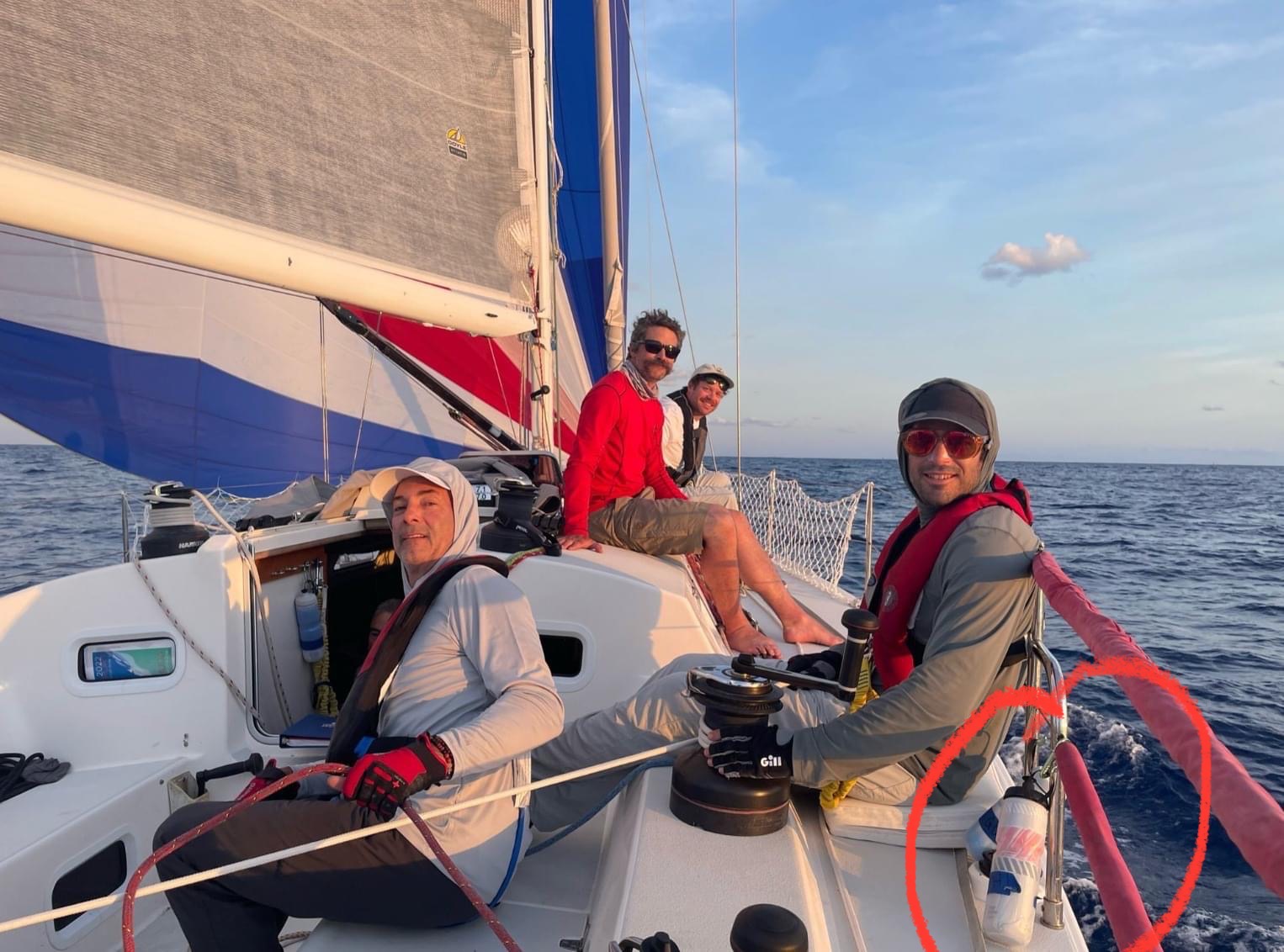
Newport Bermuda Race
The Newport Bermuda Race (NBR) is an iconic biennial race from Newport, Rhode Island to Bermuda. This offshore event has been certified as a Clean Regatta since 2016, climbing the sustainability ladder and first achieving Platinum Level in 2022. Green Team organizer Chan Reis shared with us that the ultimate goal is to improve the footprint of the event with each running, which is no small feat when there are about 200 boats racing. In 2022, the NBR launched the Environmental Steward, or “e-steward”, crew position. “Most sailors are environmentalists,” says Reis. “It’s only a matter of degree.” Adding an e-steward to the crew can bring focus and support to sustainability efforts on board.
The role of the e-steward is to help plan, provision and execute Clean Regatta and Green Boating Best Practices for each team. Appointing an e-steward helped to bring the event sustainability initiatives onto the boat for the race itself, rather than just focusing on the land-based events at either end. Many teams chose to have their e-steward in charge of provisioning, for example, to reduce the amount of packaging and potential debris brought aboard, which in turn reduces the amount of waste the sailors have to manage over the course of the race. Two Sailors for the the Sea Skipper volunteers raced in 2024, and shared how this position was valuable in their journey to race sustainably.
In addition to the practical consideration of having a point person on sustainability preparations, e-stewards also serve as a resource for one another. The NBR team set up a sustainability webpage and e-steward forum for sharing ideas, questions, and resources. Supporting collaboration among e-stewards helped ensure that not only were tips shared for this race, but also lessons learned to take to the next one. While the sailing is a competition, the sustainability doesn’t have to be!
After two races with the e-steward position in place, the Newport Bermuda Race has shared exciting developments that we hope will be beneficial to other offshore races. The full account of their efforts can be found in our Platinum Report Library.
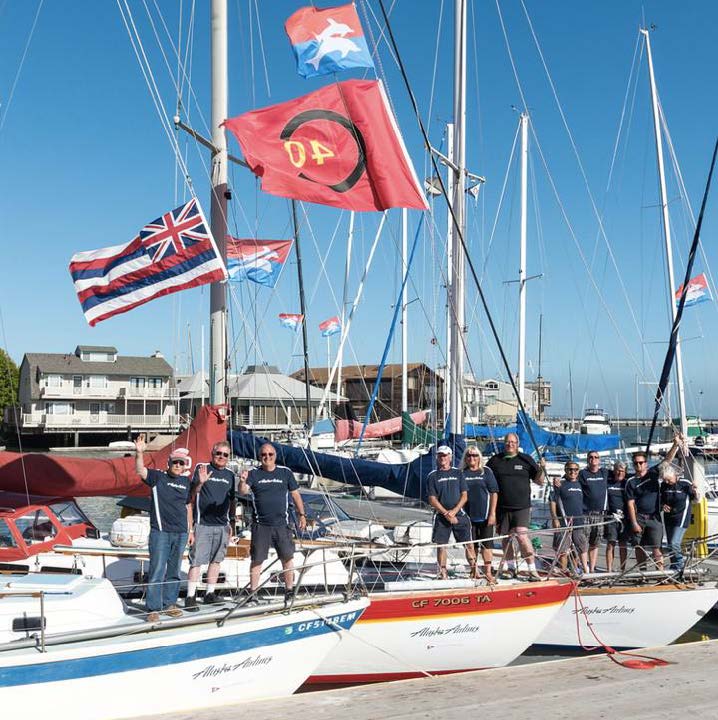
Pacific Cup
The Pacific Cup (or Pac Cup) is a biennial event that runs from Bellena Bay Yacht Club in California to Kaneohe Yacht Club in Hawaii. A distance of over 2,000 nautical miles across the Pacific, the race requires thoughtful preparation from all teams. In pursuit of a Platinum Level Clean Regatta certification, the Pac Cup Green Team crafted initiatives to promote sustainability for all entrants and make incorporating sustainability as easy as possible.
Green Team Leader Galen Loving worked with Sailors for the Sea before the race to organize two presentations. The Pac Cup hosts a series of webinars ahead of every edition, sharing race information and guidance on topics from weather and safety to how to get your boats back from Hawaii. In 2024, Sailors for the Sea Program Manager Emily Conklin participated in two virtual sessions: the first to explain the Clean Regattas program and how it can apply to offshore events and the second, together with Skipper volunteer and accomplished offshore racer Chris Wolfe, to give practical advice and answer questions. Hosting these webinars months ahead of the race gave teams plenty of time to incorporate sustainable methods into their preparations. Discussing questions specific to the Pac Cup also gave Sailors for the Sea the opportunity to provide specific guidance while learning more about how we can help this race and others like it. A win/win!
The Pac Cup also pioneered a Green Boating Competition for their 2024 edition, which they referred to as “a gamification of green boating.” The Green Team crafted a survey that each racing team was encouraged to complete. Though it was not mandatory, more than half the boats participated, sharing their experiences on sustainability in provisioning, fueling, and more. This competition not only gave a prize incentive to engage in more sustainable decision-making ahead of the race, but also offered an opportunity for teams to give feedback so the Pac Cup can improve efforts and support in the future.
Oyster World Rally
The Oyster World Rally is a 27,000 nautical mile lap of the planet, set over 16 months for cruisers on Oyster Yachts. 30 yachts participate and the route is planned to make the most of global weather patterns. The Rally visits over 25 destinations, starting and ending in Antigua, and traveling through Cape Town, Fiji, and more. With an event of this length consisting of many ports of call, sustainability efforts are fairly unique. The Oyster World Rally has been a Clean Regatta since 2022, reaching Bronze Level certification through communication and thoughtful provisioning.
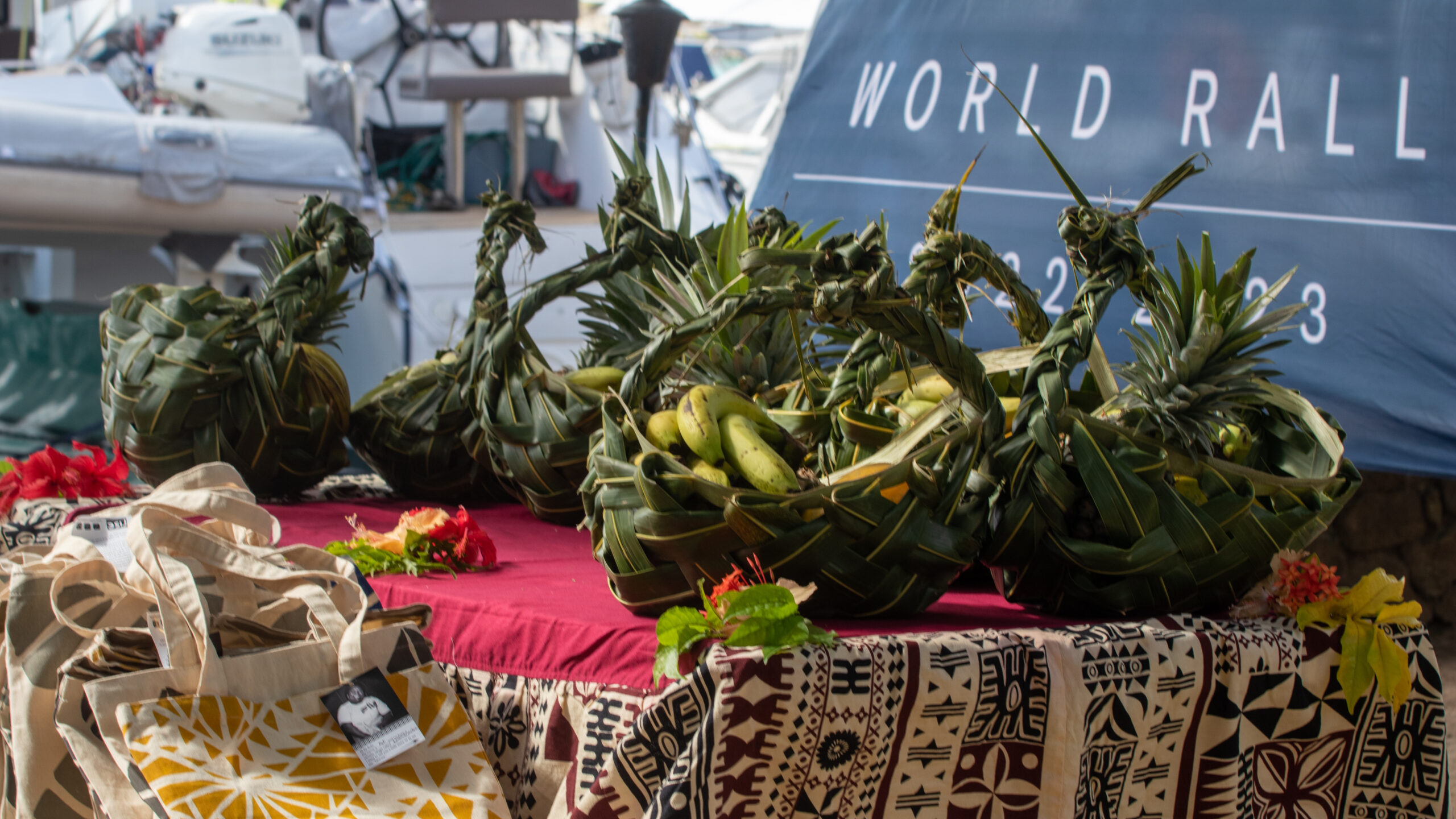
As with the Newport Bermuda Race and Pacific Cup, communication is the key. The Oyster Rally briefs the boats on sustainability objectives at the start of the Rally. We worked with the organizers to develop event-specific Green Boating Goals. Sharing goals at the beginning of the event helps set the standard for provisioning throughout the journey and gives guidance when participants are making their decisions. The Oyster Rally also shares information on organizations and initiatives that are local to each location that participants can get involved in. This information includes sharing about our Green Boating program, as well as organizing beach clean-ups in some locations and encouraging boats to track marine debris encountered while sailing.
Since the event is a circumnavigation, The Oyster World Rally has many opportunities to highlight local causes and items. They work with local venues when on-land, collaborating far in advance to organize a plastic-free, low-waste event. The Rally also features local artisans for their giveaways and prizes, highlighting products of each location while emphasizing utility and sustainability.
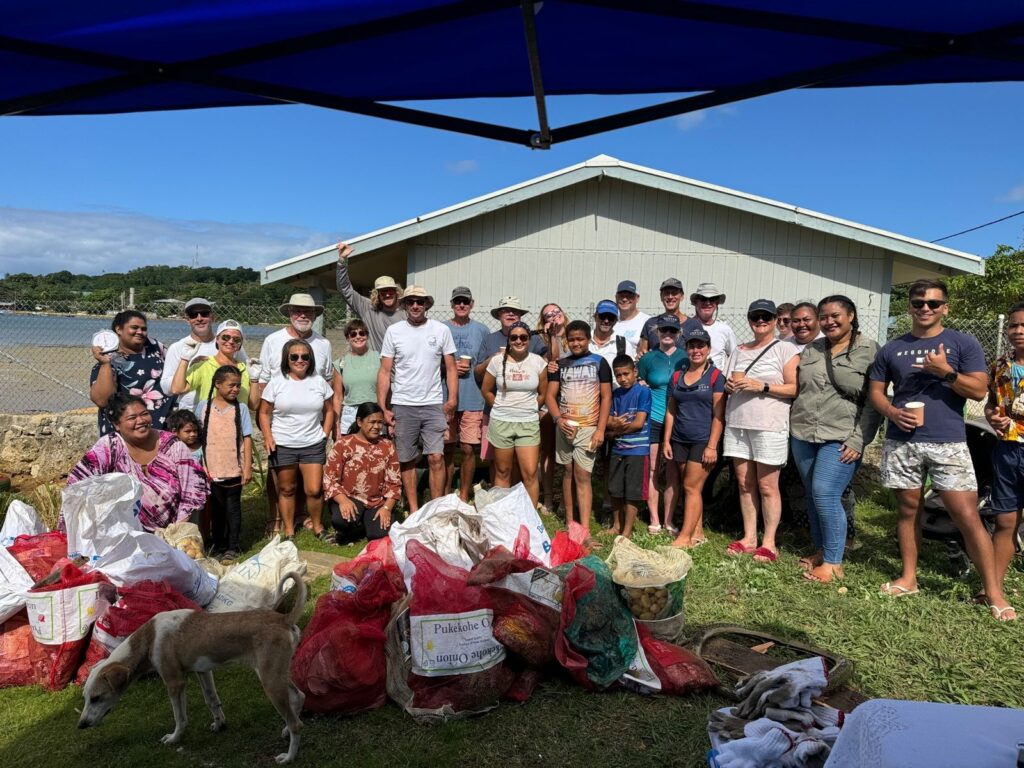
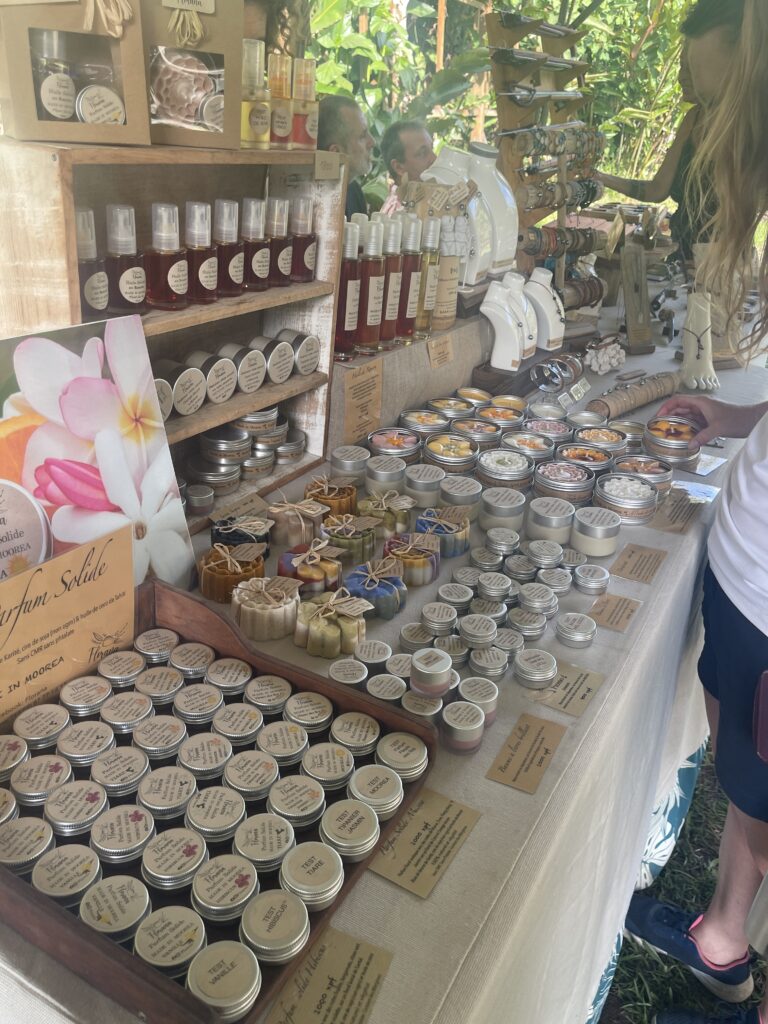
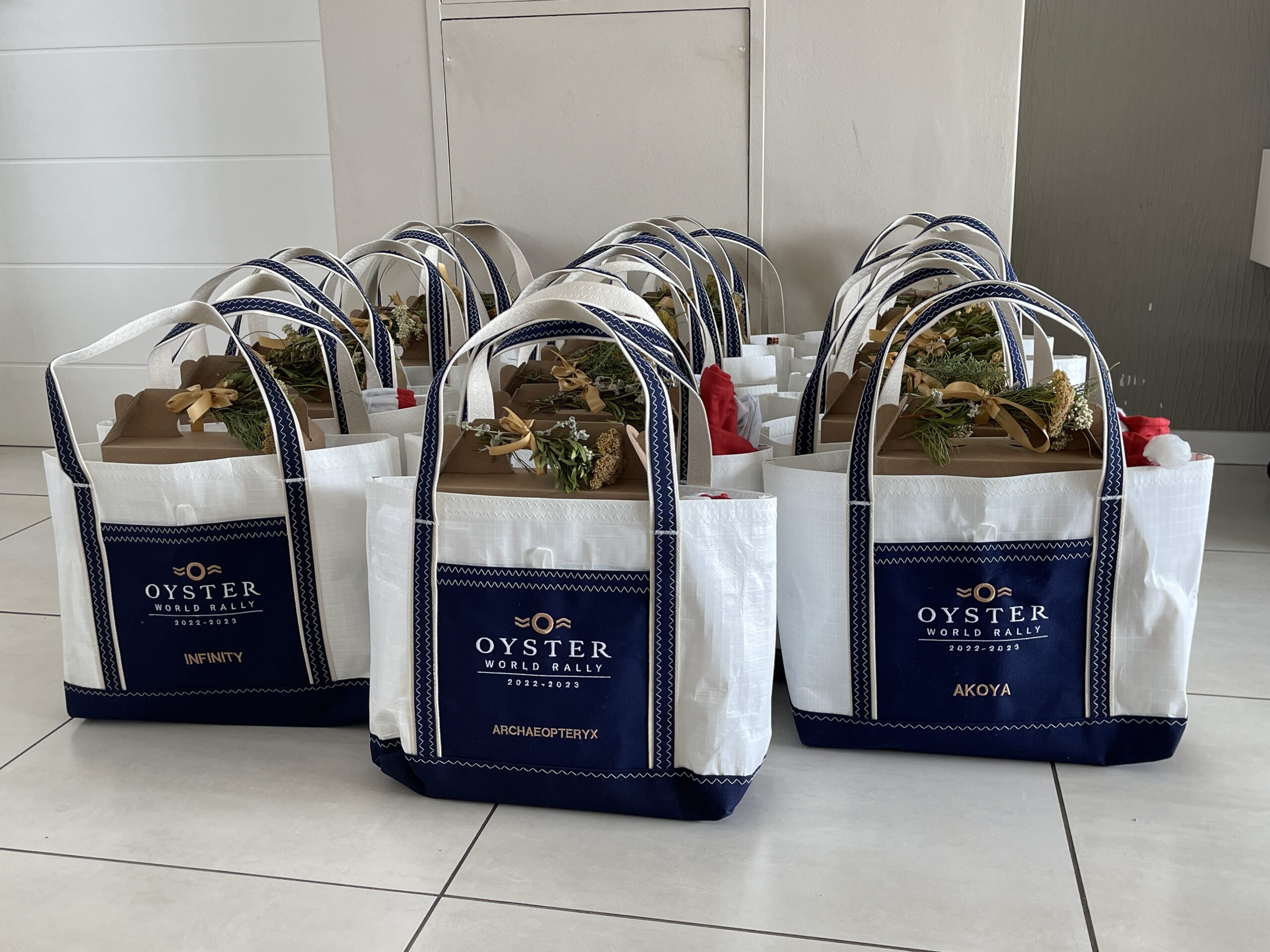
These strategies help support the sustainability philosophy of the event which will hopefully allow them to cruise the world for years to come. Moving ahead, the Rally is continuing to grow these efforts, as can be seen in their 2024 event underway, and demonstrate that sustainability is a realistic goal even when sailors are offshore for extended periods of time.
How do we make this work?
Offshore races, rallies or other events can lead the way on bringing the sustainability focus away from just land-based operations to have a bigger impact on the water. Equipping teams with resources to make better decisions and incentivizing their participation in sustainability initiatives helps each team and the overall race have a more positive impact on the environment. All of these events found success by communicating early and often. Sharing guidance and building opportunities to collaborate – even in a competitive setting – benefits everyone.
